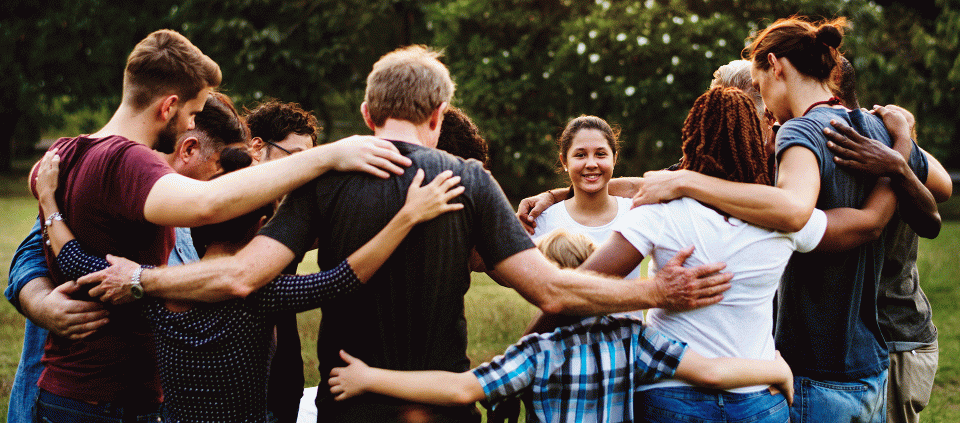A Christian Perspective on Activism and Interconnection

Family life provides crucial opportunities to impart values that foster respect and understanding. Parents can offset the violence in today's world through the development of nonviolent, cooperative attitudes and skills in children, in a home environment that supports affirmation, cooperative chores, and games. Similarly, they can create time for family prayer and family meetings to resolve domestic conflicts. Parental example is crucial, since spouses who work for marital harmony provide irreplaceable role models.
In our religious communities, perhaps our greatest challenge is to encourage the assembly to think of local work for justice—the foundation of true peace—as a necessary dimension of our efforts to overcome hatred. Work for justice is not some marginal cause, relevant to only a few "activist" members within our communities.
We must also learn how to be good hosts and good guests. How can we come to love one another and to appreciate each other's spiritual wisdom and public witness, unless we come to know one another? That means being ready to both invite others into our space and to go visit them in theirs.
Formal education about other religious communities remains indispensable. In the past year in our parish, we offered an adult education course on Islam and initiated a Jewish-Christian dialogue group with members from a local synagogue.
At every level—grade school, high school, and university—we need to cultivate awareness of our interdependence as citizens of our city and as people of faith, and to present the challenge of developing imaginative solutions to our conflicts.
Nurturing respect and understanding is a task of the spiritual life. The economy of spiritual goods is different from the economy of material goods. The more you give away material goods—money, land, houses, clothing, food—the less you have and the poorer you are.
The economy of spiritual goods is quite the reverse. The more we give, the more we receive; the more we surrender, the more we have. The more we love, show solidarity, spread goodwill, and practice forgiveness, the more we feel humanized and enriched.
Find out about upcoming programs with Fr. Thomas Ryan at Kripalu.
Excerpted with permission from Disciplines for Christian Living: Interfaith Perspectives (Paulist Press, 1993).
Fr. Thomas Ryan, CSP, Catholic priest, Kripalu Yoga teacher, and author of 16 books, directs ecumenical and interfaith relations for the Paulist community in North America.
Full Bio and Programs